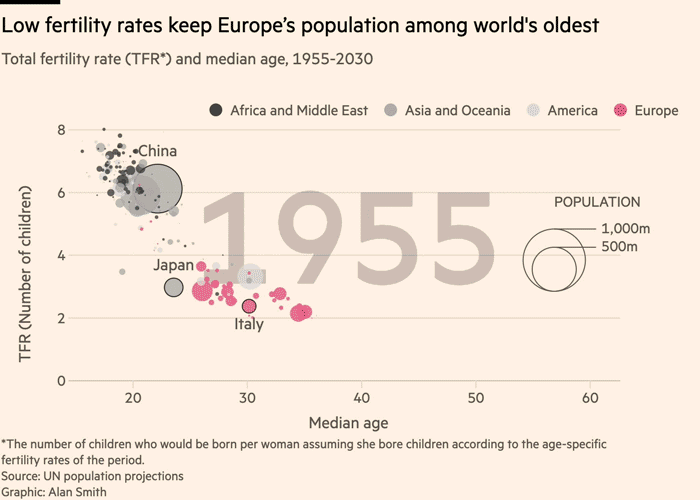More than 100 Uyghur graveyards demolished by Chinese authorities, satellite images show – “This is absolutely a massive effort to eradicate Uyghur culture as we know it and replace it with a Chinese communist party approved culture”
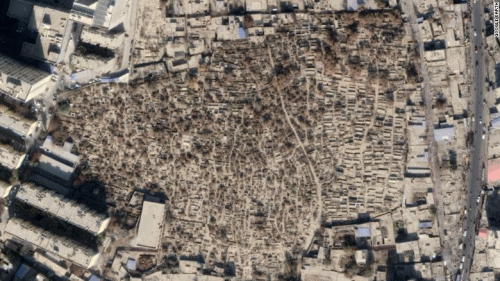
By Matt Rivers, Lily Lee, and Yong Xiong
2 January 2020
BEIJING (CNN) – Uyghur poet Aziz Isa Elkun fled China’s far western Xinjiang region nearly 30 years ago.
He’s not welcome in the country. He can’t even phone his mother. She said it was better if he didn’t, because every time he did, police would show up at her door.
So, when Elkun’s father died in 2017, there was no way he could go back to China for the burial. To be closer to his family, he would view his father’s grave on Google Earth.
“I know exactly where his tomb is,” Elkun told CNN in his north London home. “When I was a kid we would go there, pray at the mosque, visit our relatives. The entire community was connected to that graveyard.”
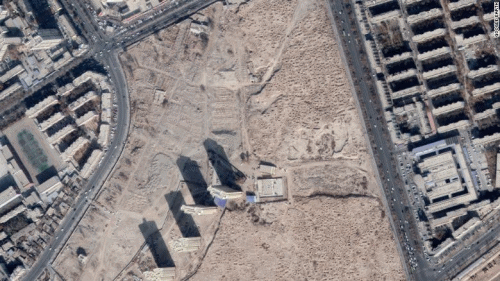
He “visited” his father like this for nearly two years. But in June, something changed. The satellite photo on Google had been updated and the graveyard that used to be there was now nothing more than a flattened, empty field.
“I had no idea what happened,” said Elkun. “I was completely in shock.”
Elkun’s story is not unique.
China appears to have been destroying traditional Uyghur cemeteries for several years as part of what critics describe as a broader, coordinated campaign to control Islamic beliefs and Muslim minority groups within its borders.
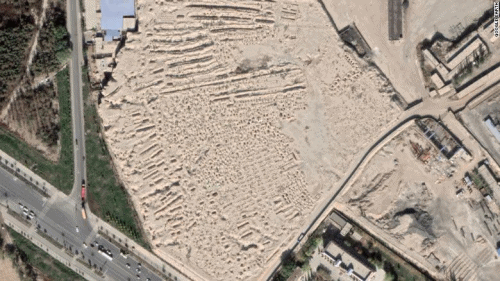
In a months’ long investigation, working with sources in the Uyghur community and analyzing hundreds of satellite images, CNN has found more than 100 cemeteries that have been destroyed, most in just the last two years. This reporting was backed up by dozens of official Chinese government notices announcing the “relocation” of cemeteries.
The destruction of Uyghur cemeteries was first reported in October by French news agency AFP and satellite imagery analysts Earthrise Alliance. They found at least 45 cemeteries had been destroyed since 2014.
AFP reporters visited several sites of destroyed cemeteries. In some, they found several bones that scientists later confirmed from photos were human remains. […]
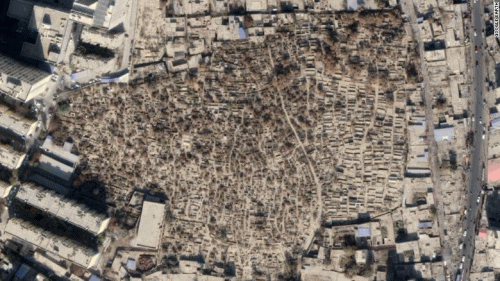
CNN shared before and after images with five experts from Canada, the United States and Australia with experience in Uyghur culture or satellite imagery. They included Rian Thum, a respected historian who uses satellite imagery as part of his research into Islam in China.
Thum confirmed the majority of the satellite images shared with him were undoubtedly destroyed cemeteries. The other four experts verified the rest of the sites.
“It is a phenomenon that stretches right across the region of Xinjiang,” said Thum. […]
“This is absolutely a massive effort to eradicate Uyghur culture as we know it and replace it with a Chinese communist party approved culture,” said Thum. [more]
More than 100 Uyghur graveyards demolished by Chinese authorities, satellite images show

